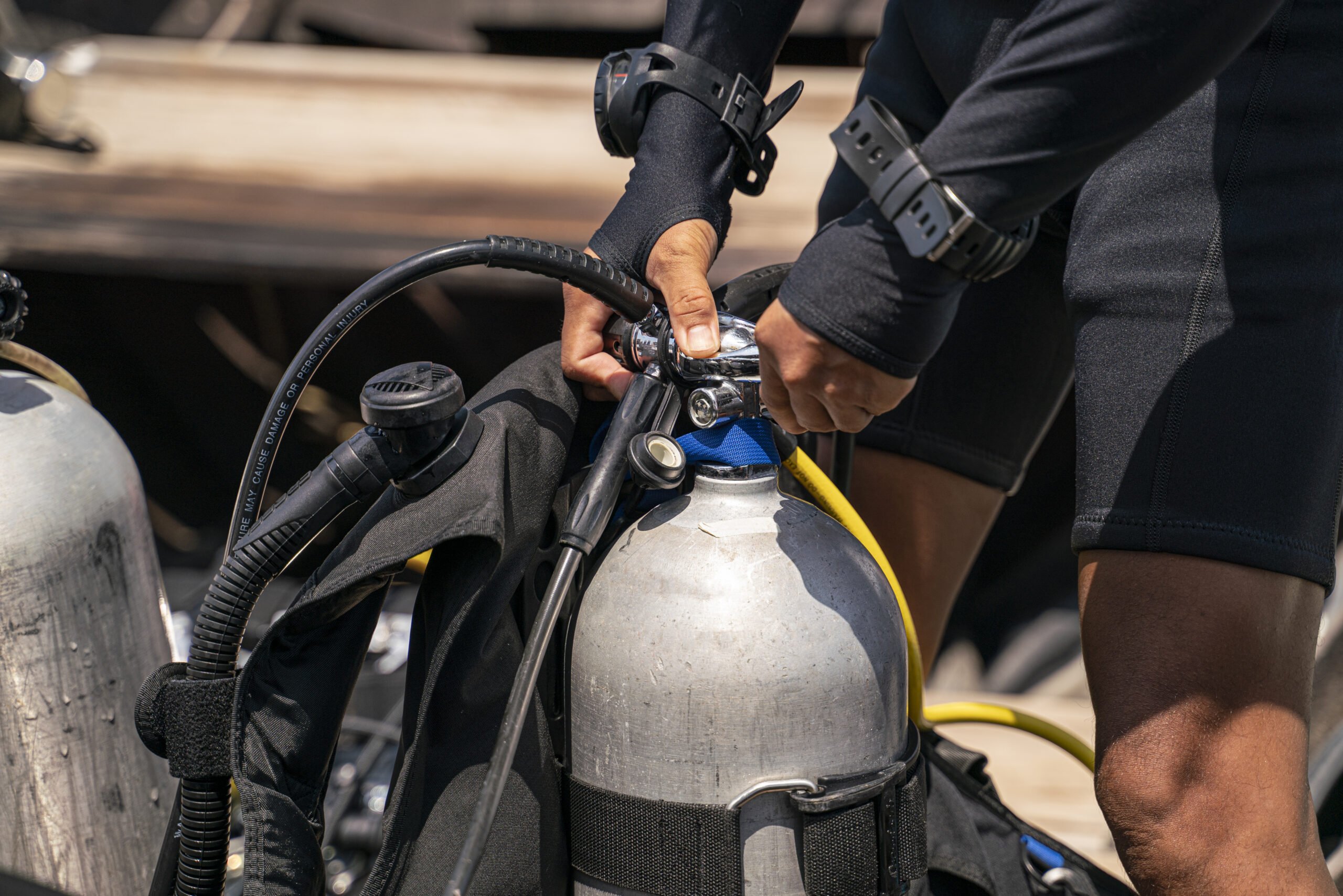
Welcome to what is, usually, the question we are asked the most. What does a Scuba Certification Cost? Have no fear, we are here to break things down in this comprehensive guide to provide you some REAL costs on each aspect of getting certified AND going out on dives. So let’s take a deep dive (snicker) into the cost breakdown of everything!
First & foremost, there are a few different costs associated with becoming a certified scuba diver. Here are the main ones you will run into:
In most dive shops (including ours), you are required to buy your personal gear when working towards your initial scuba certification. This isn’t as bad as it sounds. It consists of buying your own Mask, Fins, Snorkel (and sometimes dive boots). These items need to be fitted to you so buying online generally isn’t a good idea UNLESS you’ve already tried one on and know it fits. Even then, your LDS (local dive shop) is there to support your diving adventures (rentals, repairs, tank fills, etc), so unless they are ridiculously overpriced, supporting them is a good idea. The LDS should go through a fitting session with you to insure your mask & fins are both a proper fit (diving with a mask that constantly floods is no fun).
Note, when purchasing personal gear, please insure it is intended for Scuba Diving! Items made for snorkeling will not hold up when diving and, in rare cases, can even be dangerous.
Your scuba certification costs are broken up into 3 sections; your educational material, your in-water training & your certification fees from the certifying agency (not the dive shop). There are lots of factors that go into the fees but (usually) these fees pay for the pools, the rental gear, the tanks, the instructor, the learning material & the certifications themselves.
When you add all of this together, you end up anywhere from $500 – $900 (or more) for your certification costs. A big factor is the instructor fees as while learning to dive is pretty easy, it’s not exactly a quick process. You can expect to spend anywhere from 16-20 hours with the instructor. Most instructors love diving but they also love getting paid. Click here to learn about our open water scuba certification and cost.
So you’ve got your certification and you’re ready to go diving! Most locations have rental scuba gear available. The common rental items are BCD (Buoyancy control device), Regulators (what you breathe from), Tank(s), Wetsuit & Weights. We highly recommend once you are certified to rent a few different types of gear to see what you like best. There is no one size fits all so checking out the features, the characteristics and style are all important. If you are only diving a couple times a year renting your gear tends to be more cost effective then buying your gear. A typical setup with BCD, Regulators, 2 tanks, wetsuit and weights is anywhere from $75 – $150 (depending on the market and gear rented).
If you dive 5 or more times or more a year, we recommend you look at buying at least some of your own gear. It will save you money in the long run and you’ll honestly get better equipment, be more familiar with it’s operation, achieve a much better fit and, if you so desire, you can paint it with pink polka dots (otherwise known as personalizing it). Scuba gear is NOT inexpensive but it’s also not nearly as bad as most people think. Remember, your scuba gear is life support gear, so when you are looking at the costs, keep in mind this gear enables you to visit a world that is hostile to us otherwise. Here are some price ranges for the major gear purchases you will need:
Congratulations! You are now the proud owner of your very own scuba gear! Scuba gear is built to be robust and, in the unlikely event of failure, the engineers design it to fail as safe as possible. However, it’s very important to keep your gear regularly maintained so it operates properly and safely! Gear maintenance is performed on a time schedule, not usage, so keep that in mind when buying items. The below costs are performing scheduled maintenance and inspection and DO NOT reflect the costs of additional repairs that may be needed.
Diving fees are one of the biggest variances because it’s all about where you want to go. If you hop into your friends lake, it’s free. If you want to go waaaaaaay out to a pristine site that requires a 20 hour boat ride, it’ll probably be over $1000. With that being said, there are some safe assumptions to better understand the “general” costs of everything.
Ironically, dive insurance is one of the more reasonable costs you have as a scuba diver. There are many agencies that provide insurance for divers but DAN (Divers Alert Network) is the most popular & well known. DAN is a non-profit organization (based in our very own Durham, NC) that provides insurance specifically for divers among other things. Their policies cover the specific medical treatments you would need as a diver and even covers special flights you should an accident occur. They have medics & doctors on staff to answer medical questions for you, work with Duke University on hyperbaric science and are all around an amazing resource to have in our sport. They support divers & instructors worldwide so no matter WHERE you are, DAN can help with questions or medical emergencies.
Your virtual local Raleigh dive shop serving the Cary, Apex, Durham, Chapel Hill, Garner, Clayton & surrounding areas.
1041 Investment Blvd | Suite 151
Apex, NC 27502